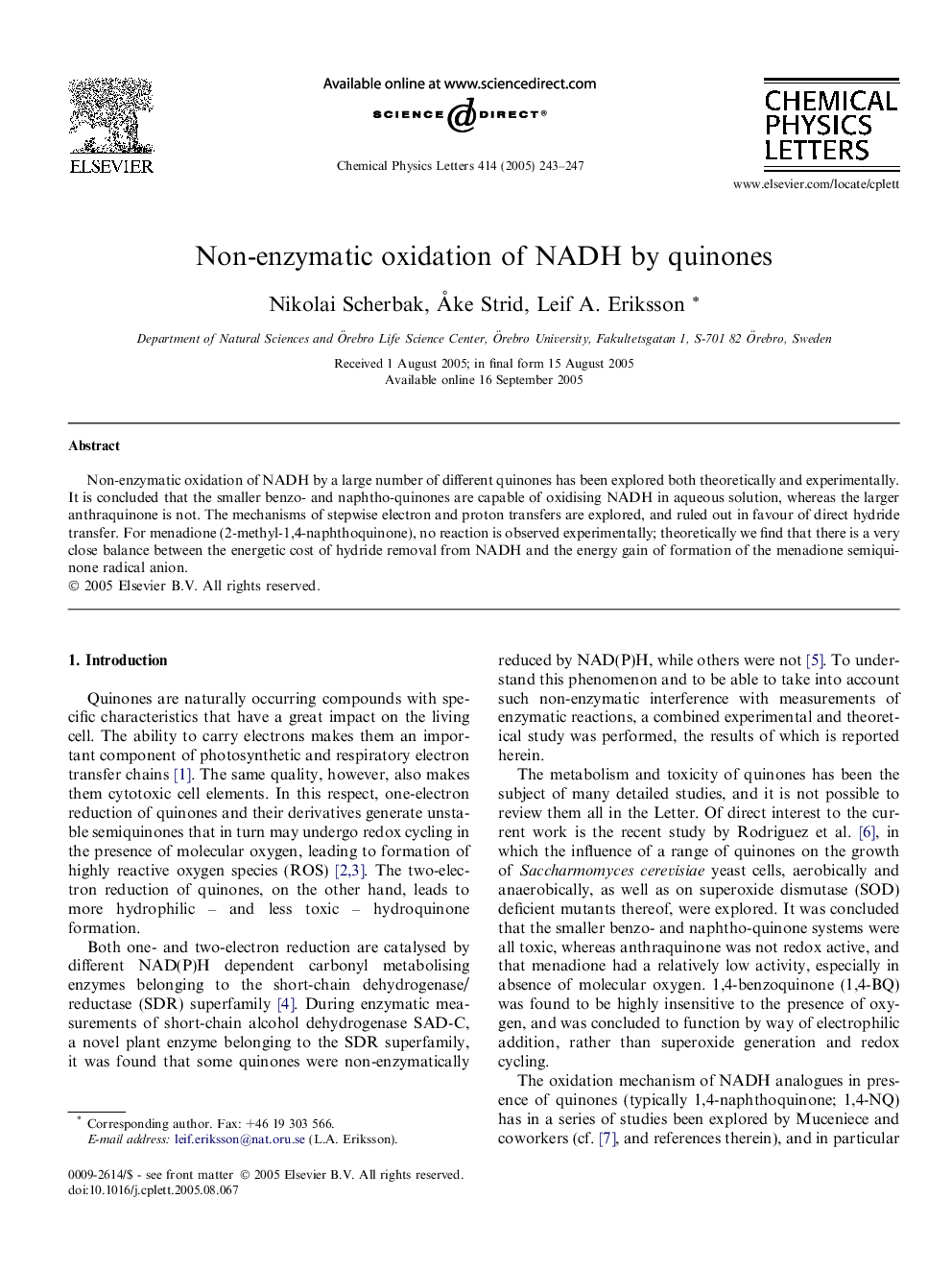| Article ID | Journal | Published Year | Pages | File Type |
|---|---|---|---|---|
| 9582298 | Chemical Physics Letters | 2005 | 5 Pages |
Abstract
Non-enzymatic oxidation of NADH by a large number of different quinones has been explored both theoretically and experimentally. It is concluded that the smaller benzo- and naphtho-quinones are capable of oxidising NADH in aqueous solution, whereas the larger anthraquinone is not. The mechanisms of stepwise electron and proton transfers are explored, and ruled out in favour of direct hydride transfer. For menadione (2-methyl-1,4-naphthoquinone), no reaction is observed experimentally; theoretically we find that there is a very close balance between the energetic cost of hydride removal from NADH and the energy gain of formation of the menadione semiquinone radical anion.
Related Topics
Physical Sciences and Engineering
Chemistry
Physical and Theoretical Chemistry
Authors
Nikolai Scherbak, Ã
ke Strid, Leif A. Eriksson,
